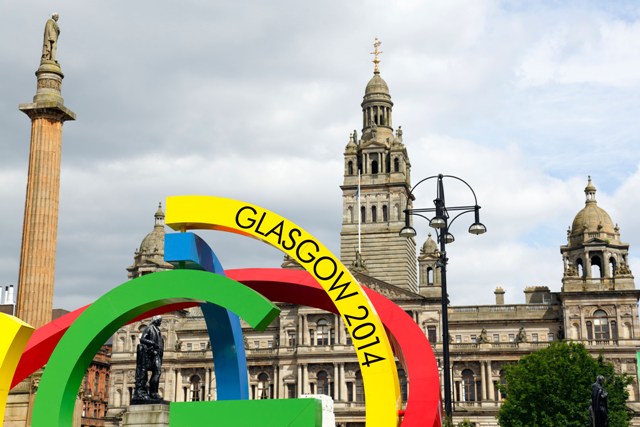
[This is an excerpt from an article featuring in our free-to-access archives series. The series provides full access for a limited period to selected articles in The Round Table: The Commonwealth Journal of International Affairs.]
At the beginning of June 1986, the Edinburgh Games were facing financial ruin, with a £4 million deficit (on a £14 million budget). Bob Maxwell burst on to the scene as an unlikely saviour of the Games, proclaiming a month later ‘there is no shortfall’. At the beginning of July, the boycott began, with the withdrawal of Ghana and Nigeria. It swiftly gathered pace, and there was little recognition by the Games authorities that they needed political help fast, through the direct assistance of the Commonwealth Secretary-General, Sir Sonny Ramphal. By the times the Games opened at the end of July, the boycott had reduced the event to a shadow of what it should have been, with financial disaster swiftly following. The farce over, Robert Maxwell quickly departed, leaving the Games to insolvency, facing the £4 million deficit he had inherited. Mrs Thatcher’s government remained unbending in its determination not to contribute a single penny to alleviating the disaster it had in large part created. Journalists Derek Batemen and Derek Douglas concluded: ‘There has never been a Games so battered and bruised by conflict, by accountants and by politicians’.
That might have been the end of the Commonwealth Games. After all, many considered them anachronistic and incapable of adapting to the new age. But the Games did not die: the CGF reformed and rose to the challenges of commercial sponsorship, and Edinburgh eventually cleared its debts; future hosts recognised the hard responsibilities (and undoubted opportunities) of staging the Games; the political hazards of international sport led to a much closer relationship between the Games authorities and the Secretary-General and Commonwealth leaders. The Commonwealth Games, phoenix-like, rose again.
In 1986, there had been only one other bidder for the Games, alongside Edinburgh—and that, ironically, was the City of Glasgow. But their bid was withdrawn and later found much better times.
The Glasgow Games shone an unaccustomed spotlight on the Commonwealth itself, generating comment, praise and criticism in about equal measure. But a few reports highlighted the untimely and sudden demise of the Commonwealth Business Council (CBC), with one commenting that the Council had ‘breathed its last shortly before what should have been its finest hour—a conference to discuss “sustainable trade and investment” on the eve of the Glasgow Commonwealth Games’.
The loss of one of the largest and most influential of the Commonwealth’s non-governmental organisations followed attempts by the Commonwealth Eminent Persons Group (EPG) (operating between 2010 and 2011) to encourage change within the body. ‘Sadly, the business of the CBC continued as usual, and its liquidation is the result’, remarked EPG member Sir Ronald Sanders.
‘The Friendly Games’ as an education launchpad
Other Commonwealth organisations have met a similar end in recent times, or have switched the focus of their programmes to an international remit, rather than one confined to the Commonwealth alone.
Yet the attrition and decline of Commonwealth organisations is not inevitable, as the Glasgow Games so dramatically illustrated. Will the Commonwealth Enterprise and Investment Council, emerging from the wreckage of the CBC, demonstrate similar powers of rebirth and renewal?
Stuart Mole is a member of the Round Table Editorial Board. This article appeared in 2014 during Stuart’s tenure as Chair of the Round Table editorial board.
Related articles:
The significance of Commonwealth games in Malaysia’s foreign policy – Round Table, 1998
From Limassol to Auckland: Update on Commonwealth sport and its commerce – Round Table, 1995
The Commonwealth Games Federation website
Commonwealth nations prepare for the Games – Inside the games



